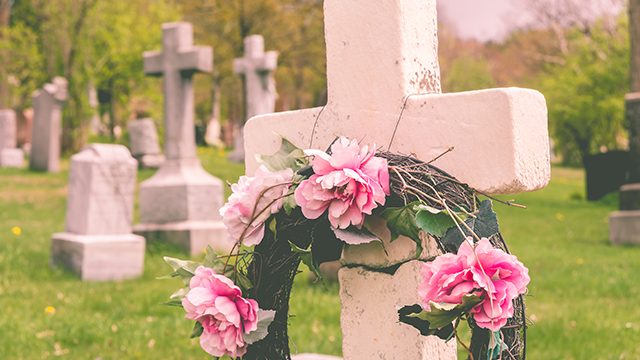SUMMARY
This is AI generated summarization, which may have errors. For context, always refer to the full article.

MANILA, Philippines (UPDATED) – On the first two days of November, Filipinos in predominantly-Catholic Philippines are remembering their dearly departed by going to cemeteries and offering prayers, flowers, and candles.
November 1 is All Saints’ Day or Undas in Filipino, and November 2 is All Souls’ Day.
As their names suggest, All Saints’ Day is meant to honor the saints, while All Souls’ Day is observed to pray for the dead and for the repose of the souls in purgatory.
Traditionally, on these days, Filipinos pay their respects to their deceased relatives and loved ones. (READ: All Saints’ Day: A mix of celebration and sadness)
But the Philippines is also home to other religions. Some faiths have practices similar to Undas, while others do not commemorate it at all.
Islam
Visiting graves of loved ones is “a commendable practice in Islam, although they do not have a fixed day to do it,” said Dr Manuel Sapitula, sociologist of religion and associate professor at the University of the Philippines-Diliman.
He also said that Muslims have a practice of praying for the dead. Sapitula added that the Prophet Muhammad, during his life, “visited graves and prayed for the dead.”
Among Filipino Muslims, some Moros in Mindanao “have a more elaborate way of commemorating dead family [members] and relatives, but there is no uniform practice done by all,” continued Sapitula.
Christian denominations
Generally, Protestants observe All Saints’ Day. But the practices in churches vary. For instance, some observe the Filipino tradition of visiting graves, while some churches remember and read the names of the congregation members who had died in the past year.
They believe every Christian is a saint. They also do not believe in purgatory.
Meanwhile, the Eastern Orthodox Church celebrates All Saints Sunday on the first Sunday after the Pentecost, which is 50 days after Easter. The Church observes its version of All Souls’ Day across a number of Saturdays to remember the dead.
Iglesia ni Cristo
The INC does not observe All Saints’ Day nor All Souls’ Day, because for them, these are not supported by Bible teachings. (READ: Faith in action: The practices of Iglesia ni Cristo)
Iglesia followers say that according to the Bible, “the dead know nothing” already and will not benefit from prayers or offerings made by the living. The Iglesia likewise does not believe in purgatory.
The INC believes the dead will rise only on Judgment Day, or the second coming of Jesus Christ. – Rappler.com
Add a comment
How does this make you feel?
There are no comments yet. Add your comment to start the conversation.